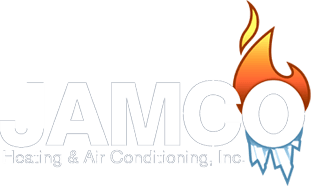FAQs About Geothermal HVAC Systems
A geothermal HVAC system is an environmentally friendly and more cost-effective alternative to a traditional HVAC setup. While this type of equipment typically involves a higher upfront cost, there’s a long-term payback on future expenses. Here we’ll explore how this eco-friendly system can benefit you and your family.
What Is Geothermal Technology?
The Earth naturally keeps the soil below its surface at a steady temperature. This is in contrast to the temperature extremes we experience in the air. Known as geothermal energy, this vast renewable resource can be used to heat and cool our indoor spaces. Equipment options designed to take advantage of this natural heating and cooling process are referred to as geothermal systems.
Types of Geothermal Technologies
There are two main geothermal processes used in the home. One is called a ground-source heat pump. The other is known as a direct use geothermal system. Most areas in the U.S. are ideal for a ground-source heat pump. However, a direct-use geothermal system will require placement in an area with high geothermal activity. Ground-source heat pumps are the most common equipment used for a home. Your local qualified installer will know which one is ideal for your property.
Are you interested in knowing more about the benefits of a geothermal system for your home? JAMCO Heating & Air Conditioning has qualified project estimators and installers available to serve property owners in Deptford. Let us know if you’d like further information about geothermal equipment for residential applications.
Types of Ground-Source Equipment
Ground-source heat pumps are also known as earth-coupled or water-source heat pumps. This type of system has been in use in the U.S. since the 1940s. Ground-source HVAC pumps use the constant soil temperature and not the outside atmosphere to condition your indoor air. There are four types of systems. Three types are closed-loop, and one is referred to as open-looped.
Horizontal, vertical and underground water- or pond-based setups are closed-loop geothermal options. Horizontal systems refer to the horizontal placement of the equipment in the ground. Likewise, a vertical system refers to placing the equipment vertically, like a skyscraper, into the ground. An open-looped application will use well water or surface water as a geothermal source. Hybrid models that combine several geothermal resources are available.
How Ground-Source Heat Pumps Work
Ground temperatures aren’t extreme and can remain in the 45 and 75 degrees Fahrenheit year-round. This means the ground is warmer than the air, and it can be used as a reliable exchange medium. Heat pumps are designed to move hot air away from the inside of a home in the summer. In the winter the system is used to push hot air into the home.
Geothermal heat pumps use a fluid that moves through a buried pipe system. As the fluid moves through the buried system, it absorbs heat. The heat is moved into the home and pushed through a heat exchanger which transfers it into the HVAC system. The fluid recycles continually through the system moving the heat in an appropriate direction depending on the season.
Ways a Geothermal Heat Pump Can Serve You
Geothermal systems can work in any climate and are considered a great long-term investment. The U.S. Office of Energy Efficiency and Renewable Energy says indoor components have a lifespan of up to 25 years. They say underground loop components can last 50 years or more.
Fans and filtration systems can be added to the HVAC equipment to further improve the delivery process for the homeowner. Some geothermal systems can include a mechanism that heats a hot water heater. The family pool can also be heated using a heat pump.
Geothermal Versus Traditional HVAC Systems
In the long run, the initial installation costs of geothermal equipment can be worth it. Geothermal systems are more energy-efficient than a traditional HVAC system. They can also lighten the load on your community’s electric grid and reduce carbon emissions because of their high efficiency.
For professional results on your next heating or cooling project in Deptford, contact JAMCO Heating & Air Conditioning. Our company has been serving locals since 1986. We’re a Lennox Premier Dealer, and we hire NATE-certified technicians to work for us. We offer an honest approach to handling installations, repairs and maintenance services for all types of residential properties. Ductless products, heat pumps and packaged systems can be serviced by our team. Call us today to schedule an appointment for your home.

